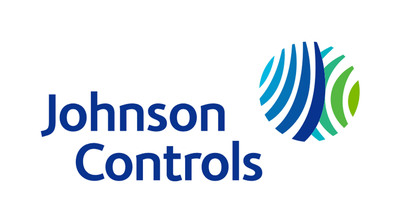Smarter Buildings Key to Accelerating Decarbonization Goals, According to New Johnson Controls Study
- Urgent need to meet climate targets through smart building technologies shared among nearly 3,500 building owners and operators in landmark survey spanning 25 countries and 18 industries.
"For leaders looking to quickly advance their net zero journey and make a real impact on global carbon reduction, buildings are the key enabler," said Johnson Controls Chairman and CEO George Oliver. "This new research shows decisionmakers around the world understand sustainable buildings are better for the balance sheet and external partners are invaluable in optimizing buildings and measuring environmental impact. Solutions exist today that can remove the need for upfront capital, digitalize a building's systems to provide actionable data, electrify systems to accelerate the energy transition, and create positive cash flow. These are immediate solutions we can all adopt now as we respond to a changing climate and work to reduce carbon emissions."
The survey of nearly 3,500 respondents representing 25 countries and 18 industries shows that sustainability is one of their three top business priorities. Among decisionmakers on sustainability initiatives specifically – a subset of 1,500 respondents – two thirds report they are fully on track to meet their carbon reduction goals while one third realize they need to accelerate their efforts to meet 2030 net zero goals. Respondents report that smart buildings are important in helping their organizations accelerate sustainability initiatives (
Technologies exist that can digitalize a building's systems multiply energy, emissions, and cost savings, and can even create net-energy-positive solutions. Some
"We cannot decarbonize the planet without decarbonizing buildings. This research shows that we're at a tipping point where sustainability is a top business priority and companies are aggressively pursuing their net zero targets but are also actively seeking partners to help accelerate those efforts," said Katie McGinty, vice president and chief sustainability and external relations officer at Johnson Controls. "Working with partners to rapidly deploy smart building technology not only cuts waste but strengthens the bottom line. It's also increasingly becoming a regulatory imperative, an expectation of stakeholders, and a differentiator for attracting talent. Smarter, more sustainable building solutions are immediate steps leaders can implement to make a difference on climate change."
Other key findings include:
- Sustainability is increasingly a core consideration across business functions. When comparing findings from security, sustainability, and building environment systems decision-makers, all were focused on improving efficiency in operations and doing so sustainably.
- Customer-required reporting, public reporting, and supply chain compliance reporting have significantly increased over the past two years since Forrester first conducted this study in 2021. Reporting is among respondents' top challenges. Among
53% , the ability to only measure and report on carbon emissions once a year or quarter is limiting incremental progress. - Roughly a third of respondents say they expect AI will have a significant impact on improving sustainability in company-owned spaces by providing them actionable recommendations to prevent downtime and optimize efficiencies before losses occur.
- A third of leaders note their organization would be able to keep their sustainability goals on track if faced with a minor budget cut, while another two-thirds would need help maintaining resiliency of their sustainability strategies. To account for factors outside their control, organizations need strategic partners and technology solution providers to identify opportunities for short and mid-term savings like energy efficiency solutions and water and waste reduction.
Additional insights are available in a new thought leadership paper, The Race to Zero Carbon Requires Smart Buildings. The study is the first in a new series of studies capturing key findings from the survey, planned for release in the coming months at https://www.johnsoncontrols.com/smart-buildings/forrester-2023.
Johnson Controls has developed a three-step process to transform buildings into strategic assets – design, digitalize, deploy. The journey starts when we design and roadmap solutions that achieve efficiency, sustainability, decarbonization, resiliency and energy transition in accordance with our customer's goals. Next, we digitalize to make buildings smarter through solutions like our OpenBlue Net Zero Advisor, connecting infrastructure, distributed generation and the grid so we can access data that is critical to making informed decisions to solve for cost and carbon. We then deploy our solutions through a one-source, turnkey delivery model that leverages best-in-class efficiency, electrification, and renewables solutions. Operations, service and maintenance underpin our "as-a-service" offerings to maintain peak operating conditions, protect customer's investment and achieve the lowest lifecycle costs.
The cornerstone of this smart building strategy is Johnson Controls OpenBlue, an industry-leading ecosystem of connected technologies, expertise and services. OpenBlue reads the live activity of a building and continuously adapts to optimize performance. Combining data from across the building's systems and using advanced digital tools like AI, we can provide insights that save more energy and emissions than possible with isolated systems.
To learn more about how Johnson Controls OpenBlue is transforming smart buildings, please visit: http://www.johnsoncontrols.com/OpenBlue.
Methodology
In August 2023, Johnson Controls commissioned Forrester Consulting to evaluate the state of smart buildings. Forrester conducted an online survey with 3,445 respondents responsible for smart building strategy to explore this topic. All respondents were asked high-level smart building strategy questions and then more granular questions depending on their level of responsibility for sustainability, security, and/or building environmental systems. Respondents represented organizations in 18 industries and 25 countries. The study was conducted in a double-blind fashion.
About Johnson Controls:
At Johnson Controls (NYSE:JCI), we transform the environments where people live, work, learn and play. As the global leader in smart, healthy and sustainable buildings, our mission is to reimagine the performance of buildings to serve people, places and the planet.
Building on a proud history of nearly 140 years of innovation, we deliver the blueprint of the future for industries such as healthcare, schools, data centers, airports, stadiums, manufacturing and beyond through OpenBlue, our comprehensive digital offering.
Today, with a global team of 100,000 experts in more than 150 countries, Johnson Controls offers the world`s largest portfolio of building technology and software as well as service solutions from some of the most trusted names in the industry. Visit www.johnsoncontrols.com for more information and follow @Johnson Controls on social platforms.
Media Contact:
Trent Perrotto, vice president, External Communications
Phone: 414-524-8687
Email: media@jci.com
1 Source: "The Net Zero Carbon Buildings Commitment," World Green Building Council |
![]() View original content to download multimedia:https://www.prnewswire.com/news-releases/smarter-buildings-key-to-accelerating-decarbonization-goals-according-to-new-johnson-controls-study-302001285.html
View original content to download multimedia:https://www.prnewswire.com/news-releases/smarter-buildings-key-to-accelerating-decarbonization-goals-according-to-new-johnson-controls-study-302001285.html
SOURCE Johnson Controls International plc







